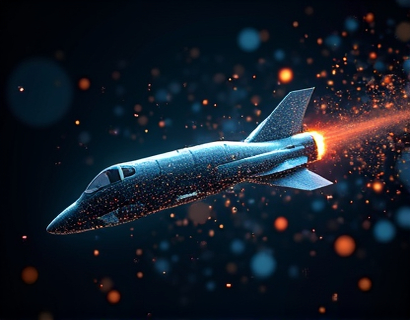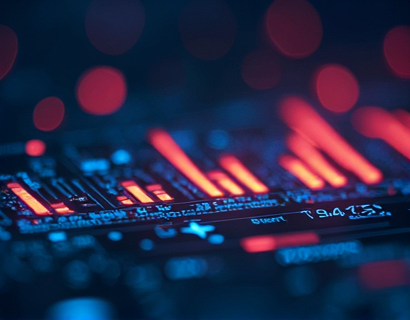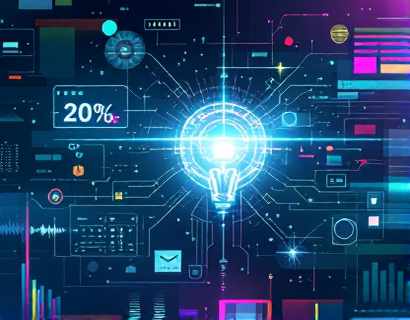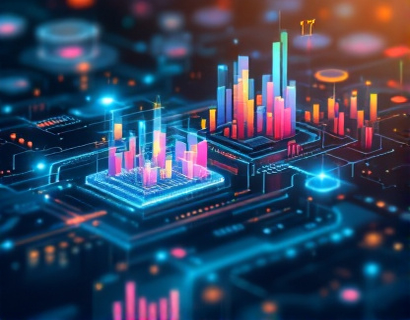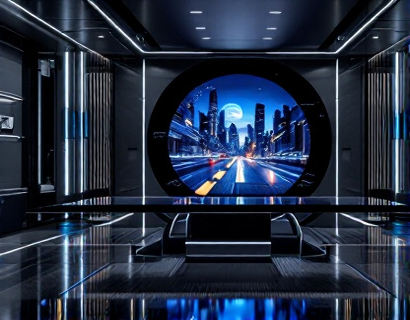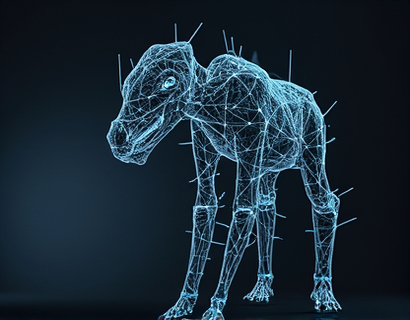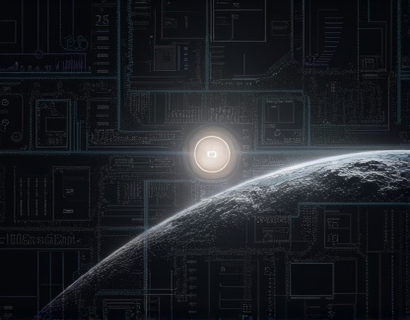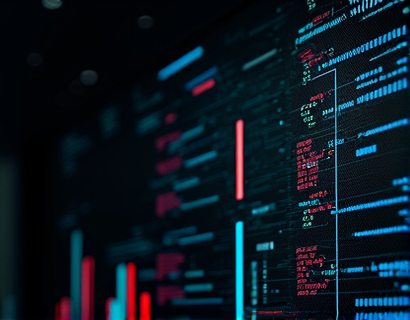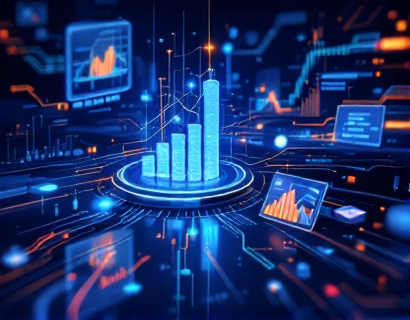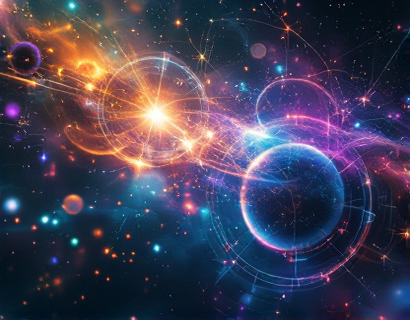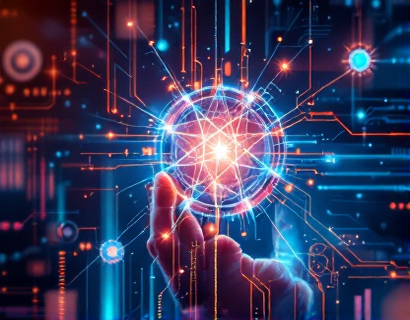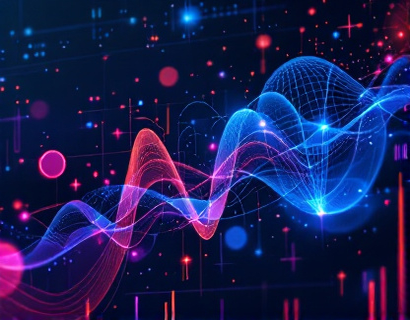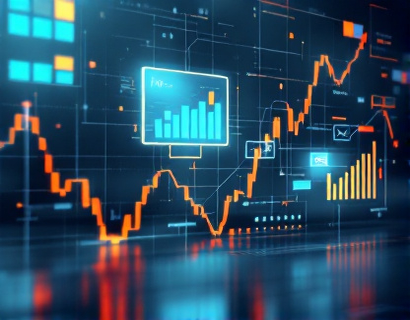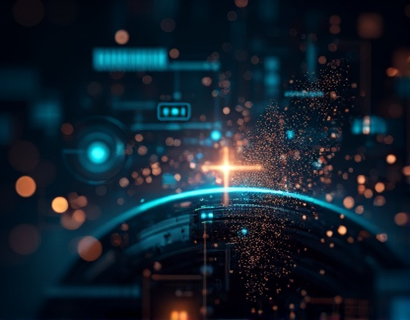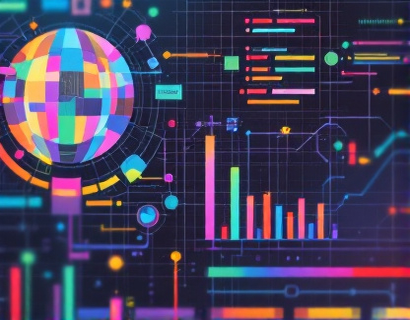Revolutionizing Digital Solutions: The Synergy of AI and Crypto
The intersection of artificial intelligence and cryptocurrency is giving birth to a new era of digital innovation, where blockchain technology and machine learning converge to create groundbreaking applications. This convergence, often referred to as BlockchainAI, is transforming the way we interact with digital services, offering enhanced security, efficiency, and user experiences. As technology continues to evolve, understanding the potential of this synergy is crucial for tech enthusiasts and professionals alike.
Understanding Blockchain and AI
Blockchain technology, at its core, is a decentralized ledger that records transactions across multiple computers in a way that ensures security, transparency, and immutability. It eliminates the need for intermediaries, reducing costs and increasing trust in digital interactions. On the other hand, artificial intelligence involves the simulation of human intelligence processes by machines, particularly computer systems. These processes include learning, reasoning, and self-correction.
When combined, blockchain and AI create a powerful toolset for developing applications that are not only secure and transparent but also intelligent and adaptive. Blockchain provides the infrastructure for trustless and secure data exchange, while AI enhances the functionality and user experience of these systems through advanced analytics, predictive modeling, and automated decision-making.
The Role of Blockchain in Enhancing AI Applications
One of the primary ways blockchain enhances AI applications is through data integrity and privacy. In traditional AI systems, data is often centralized and managed by a single entity, making it vulnerable to breaches and manipulation. Blockchain's decentralized nature ensures that data is distributed across a network, making it extremely difficult for any single party to alter or tamper with it. This enhances the trustworthiness of the data used in AI models, leading to more accurate and reliable outcomes.
Moreover, blockchain can facilitate the creation of decentralized data markets, where data owners can monetize their data while maintaining control over it. Smart contracts on the blockchain can automate the process of data sharing and compensation, ensuring fair and transparent transactions. This not only incentivizes data contribution but also promotes a more democratic and inclusive data ecosystem.
AI-Driven Enhancements to Blockchain Technology
AI also plays a crucial role in optimizing blockchain technology itself. Machine learning algorithms can be used to improve the efficiency and scalability of blockchain networks. For instance, AI can help in optimizing consensus mechanisms, reducing the computational power required for validating transactions and adding blocks to the chain. This not only lowers energy consumption but also increases the speed and throughput of the network.
Another area where AI shines is in fraud detection and security enhancement. Machine learning models can analyze patterns and anomalies in transaction data to identify potential fraudulent activities in real-time. This proactive approach to security can significantly reduce the risk of cyberattacks and enhance the overall security of blockchain-based systems.
Use Cases of BlockchainAI
The potential applications of BlockchainAI are vast and varied, spanning multiple industries. Here are some key use cases that highlight the transformative power of this synergy:
- Supply Chain Management: BlockchainAI can provide end-to-end visibility and traceability in supply chains, ensuring that products are authentic and ethically sourced. AI-driven analytics can optimize logistics, predict demand, and reduce costs.
- Healthcare: In healthcare, BlockchainAI can secure patient data, ensure compliance with regulations, and enable seamless data sharing between providers. AI can analyze medical records to provide personalized treatment recommendations and predict disease outbreaks.
- Finance: The finance sector can benefit from BlockchainAI through smart contracts for automated and secure transactions, AI-driven risk assessment for lending and insurance, and decentralized finance (DeFi) platforms that offer financial services without traditional intermediaries.
- Identity Verification: BlockchainAI can create secure and decentralized identity verification systems, reducing the risk of identity theft and fraud. AI can enhance the accuracy of identity checks and manage digital identities in a user-friendly manner.
- Gaming: In the gaming industry, BlockchainAI can enable true ownership of in-game assets through non-fungible tokens (NFTs), create fair and transparent loot boxes, and develop adaptive game environments that respond to player behavior.
Challenges and Considerations
While the potential of BlockchainAI is immense, there are several challenges and considerations that need to be addressed:
First, the technical complexity of integrating blockchain and AI requires a skilled workforce capable of developing and maintaining these systems. There is a need for education and training programs to build this expertise.
Second, regulatory frameworks are still evolving, and the legal status of blockchain and AI applications varies across jurisdictions. Companies must navigate these regulations carefully to ensure compliance and avoid legal pitfalls.
Third, scalability remains a significant challenge for blockchain technology. As the number of transactions increases, the network must be able to handle the load without compromising performance. AI can help in optimizing blockchain operations, but further research and development are needed.
Lastly, there is a need for standardization in the industry to ensure interoperability between different blockchain and AI systems. Standardization can facilitate broader adoption and collaboration, driving innovation and growth.
Future Prospects
The future of BlockchainAI is bright, with numerous opportunities for innovation and growth. As technology continues to advance, we can expect to see more sophisticated and integrated solutions that leverage the strengths of both blockchain and AI. Here are some potential future developments:
First, the rise of decentralized artificial intelligence (DAI) could revolutionize how AI models are developed and deployed. DAI platforms can enable collaborative AI development, where multiple parties contribute to the training and improvement of models without central control.
Second, the integration of blockchain with the Internet of Things (IoT) can create a secure and transparent ecosystem for connected devices. AI can enhance the functionality of IoT devices by enabling predictive maintenance, optimizing resource usage, and ensuring security.
Third, the development of quantum-resistant blockchain algorithms is crucial to future-proof these systems against quantum computing threats. AI can play a role in researching and implementing these algorithms, ensuring the long-term security and reliability of blockchain networks.
Finally, the growing adoption of Web3, a decentralized internet powered by blockchain, will further drive the integration of AI in digital experiences. Web3 applications will leverage AI to provide personalized, secure, and interactive user experiences, redefining the way we interact with the digital world.
Conclusion
The convergence of AI and blockchain is paving the way for a new generation of digital solutions that are more secure, efficient, and user-friendly. By harnessing the power of blockchainAI, we can create applications that not only enhance our digital experiences but also address some of the most pressing challenges of our time. As this field continues to evolve, staying informed and engaged with these developments will be essential for anyone looking to stay ahead in the digital landscape.




